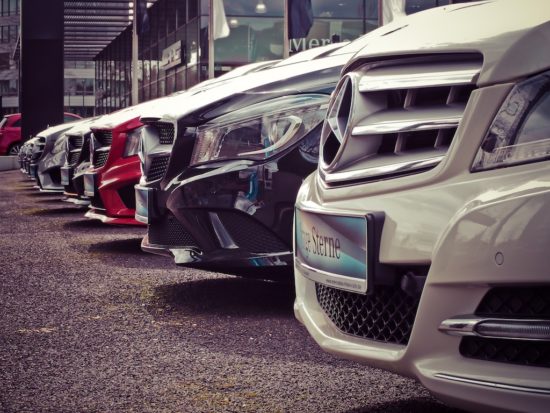Whether in the market for your first car or upgrading your current ride, deciding between buying a new or used vehicle can be challenging. Each option has appeal, from the fresh-off-the-lot feel of a new car to the affordability and value of a pre-owned one.
To make the best choice, weighing the pros and cons is important. According to JDM Plates, here’s what you need to consider.
Pros of Buying a New Car
1. Latest Technology and Features
Benefit: New cars come equipped with the latest technology and safety features. From advanced driver-assistance systems to infotainment upgrades, new vehicles are designed to give you access to the most modern innovations.
Drawback: While impressive, these features come at a price. A new car’s technology can drive up the overall cost; sometimes, it’s not essential for everyday driving.
2. Reliability and Warranty
Benefit: When you buy new, you get a vehicle that has not been driven or subjected to wear and tear. It means it’s in pristine condition, and you’re less likely to encounter mechanical issues early on. Plus, new cars come with a manufacturer warranty, offering peace of mind for several years.
Drawback: You’re paying a premium for reliability. New cars lose a large portion of their value the moment they’re driven off the lot, which can be a tough pill to swallow if you plan to sell or trade in the vehicle in a few years. In contrast, reliable used cars can offer similar dependability at a fraction of the cost without steep depreciation.
Long Term Ownership Plans: Of course, buying isn’t your only option if your ownership plans are relatively short-term, either. You can just as easily lease a car, which offers many similar cost benefits as buying used, but often allows drivers to access more reliable cars with more advanced features than their budget would permit.
3. Customization
Benefit: Buying a new car means you can often choose the exact colour, trim level, and optional features you want. It’s customized to your preferences.
Drawback: Customization can add to the overall cost. Dealerships charge extra for upgrades; you may have to wait weeks or months for a special order to arrive.
Cons of Buying a New Car
1. Higher Purchase Price
Cost Factor: The most apparent drawback of buying new is the price. New cars typically cost thousands more than their used counterparts, making them less accessible to buyers on a budget.
Depreciation: As mentioned earlier, new cars lose value quickly. A new vehicle can depreciate by 20-30% within the first year, which is significant if you plan to sell it soon after.
2. Higher Insurance Costs
Expense: Insuring a new car is generally more expensive than insuring a used car. New cars have higher market values, which means higher premiums. Lenders often require comprehensive and collision insurance if you finance a new vehicle, adding to the cost.
Pros of Buying a Used Car
1. Lower Price
Savings: One of the most significant advantages of buying a used car is the lower purchase price. Since the vehicle has already depreciated, you’re getting a better deal upfront. It can make a used car more affordable, especially if you’re looking for a specific model just a few years old.
Value Retention: Used cars depreciate slower than new ones. Most of the steepest depreciation has already occurred by the time you buy. If you decide to sell the car a few years later, you’ll retain more of its value than if you had purchased it new.
2. Lower Insurance Costs
Benefit: Because used cars have a lower market value, they are typically less expensive to insure. You also have the flexibility to drop certain types of coverage, like collision or comprehensive insurance, once the car’s value decreases enough.
3. More Vehicle for Your Money
Upgrades: When you buy used, you might be able to afford a higher-end model or trim level that would have been out of your budget if you were purchasing new. Getting a luxury car or a vehicle with premium features at a fraction of the cost is possible.
4. Reduced Fees and Taxes
Savings: Used cars often come with lower registration fees and taxes, depending on the vehicle’s age and value. It can lead to additional savings that make used cars even more cost-effective in the long run.
Cons of Buying a Used Car
1. Limited or No Warranty
One of the most significant downsides of buying used is the risk of purchasing a vehicle without a warranty. If something goes wrong, you could be responsible for paying out-of-pocket for repairs. Some dealerships do offer Certified Pre-Owned (CPO) vehicles, which come with warranties, but these cars tend to be more expensive.
2. Unknown Vehicle History
While you can get a vehicle history report through services like Carfax, there’s still a risk that the car has hidden issues. Even with thorough inspections, knowing how the previous owner treated the vehicle can be challenging. Was it maintained regularly, or were important repairs neglected?
3. Higher Maintenance Costs
Repair Costs: As cars age, they require more maintenance, and parts may start to wear out. It could lead to unexpected repair bills that can quickly add up, especially if the vehicle’s warranty has expired.
Fuel Efficiency: Older vehicles may not be as fuel-efficient as new models, which can lead to higher operating costs over time. If fuel economy is a priority, this could be a significant downside.
Comparing the Two: What to Consider Before You Buy
1. Budget and Financing
Do you have a strict budget, or are you flexible? New cars typically have better loan terms if you need financing, but used cars are more affordable upfront.
2. Long-Term Ownership Plans
Are you planning to drive the car for several years, or do you like to trade in your vehicle every few years? If you’re keeping it long-term, depreciation may not be as much of a concern, making a new car a viable option. However, if you plan to trade in within a few years, a used vehicle might hold its value better.
3. Personal Preferences
Do you prioritize having the latest technology, or is finding a car that fits your budget more important? New vehicles offer cutting-edge features and customization options, while used cars provide savings and potential for a higher-end model.
To better understand the long-term financial implications of your purchase, including the total cost of ownership for both new and used cars, you can explore the comprehensive TCO analysis provided by Edmunds. This resource helps you evaluate all the associated costs, giving you a clearer picture of your investment over time.
Conclusion
Choosing a new or used car depends on your budget, preferences, and long-term goals. A new vehicle provides peace of mind, reliability, and the latest features but comes with higher costs and rapid depreciation. On the other hand, a used car offers significant savings, lower insurance rates, and slower depreciation but may come with higher maintenance needs and less certainty about its history. Weigh the pros and cons carefully to determine which option fits your lifestyle and financial situation.



I’ve been considering getting an S58 catted downpipe for my BMW X3 M, and this blog really helps! I’ve heard that the high-flow design not only improves horsepower but also retains emissions standards, which is crucial for daily drivers like me. The reduction in turbo lag is another benefit I keep hearing about. While the cost is a bit higher than catless alternatives, I think the trade-off is worth it for peace of mind and long-term reliability. Can anyone share their experience with installation and whether it triggers any ECU issues? Your insights would be highly appreciated!